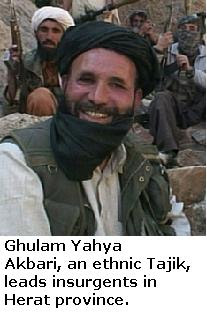As we will see below, a recent announcement by NATO commanders that rules for air strikes have been changed to reduce the risk of civilian casualties appearas to be mere propaganda.
Here's the claim, courtesy of Reuters:
NATO Troops To Retreat If Afghan Civilians At Risk
KABUL, Oct 14 (Reuters) - NATO has ordered its troops in Afghanistan to pull back from firefights with the Taliban rather than call in air strikes that might kill civilians, Afghan and NATO officials said...
NATO defense ministers endorsed the restriction at a summit in Budapest last week after three U.S. air strikes killed more than 100 Afghan civilians in the three months... 
If there is a risk to civilians, troops have now been ordered to withdraw if they can, rather than order bombings that would earn a short-term victory but boost Taliban opponents in the longer term.
That should lead to a drop in the number of air strikes, which are up sharply from last year, said a spokesman for NATO's International Security Assistance Force (ISAF).
ISAF chief U.S. General David McKiernan has also told his officers that as far as possible all operations should be conducted alongside Afghan forces, an ISAF spokesman said...
"There will be no uninvited entry into an Afghan house or a mosque without having the lead from the Afghan Army unless there is a clear danger that comes from that house," said ISAF spokesman Brigadier General Richard Blanchette. (link)
The
Washington Post has some pertinent details:
NATO Modifies Airstrike Policy In Afghanistan
Commanders Told to Consider Alternatives
By Candace Rondeaux
Washington Post Foreign Service
KABUL, Oct. 15 -- In a bow to public outrage over a recent spate of U.S.-led airstrikes in Afghanistan that resulted in more than 100 civilian deaths, NATO officials have ordered commanders to try to lessen their reliance on air power...
Brig. Gen. Richard Blanchette, NATO's chief spokesman in Afghanistan, said commanders are now under orders to consider a "tactical withdrawal" when faced with the choice of calling in air support during clashes in areas where civilians are believed to be present...
U.S. Gen. David D. McKiernan, top commander of NATO forces in Afghanistan, issued the new order early last month. (link)
The order, expected to lessen air strikes, was
given by Gen David McKiernan sometime before September 8. Have air strikes lessened since the new order was issued? The data say no.
The US Air Force issues airpower summaries nearly every day on their
website. These summaries relate the number of close air support (CAS) missions in Afghanistan as well as Iraq. Back in 2006, the average number of CAS missions in Afghanistan was about 40 per day. By 2008, the average had risen to about 70. So, let's look at what happened both before after the new order took effect.
Here are the reported numbers of CAS missions from August 1 to 10 (no Aug 8 airpower summary was issued):
67, 69, 69, 45, 70, 74, 72, 78, 60.
Avg= 59.4For reasons unknown to me, the daily airpower summaries stopped from August 10 to September 7. Now, here are the first nine reported totals after reporting recommenced on September 7. (Keep in mind, the new order was given in early September, as per above.):
44, 70, 77, 74, 81, 51, 74, 68, 72.
Avg= 67.9And now the nine most recent reports, up to October 16:
69, 70, 47, 70, 71, 68, 66, 70, 72.
Avg= 67So, before the new rules took effect, there were actually fewer CAS missions than there were after the rules took effect.
Related:





















